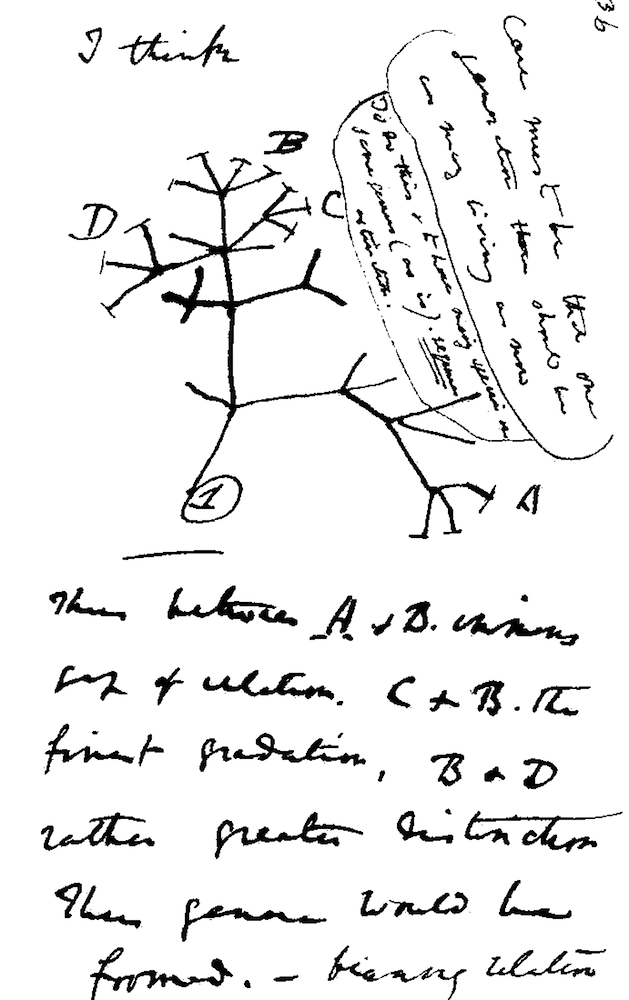Teaching Evolution Just Got Tougher in Tennessee

In a possible sign of the continuing debate over the teaching of evolution, the governor of Tennessee has allowed a bill that seems to support the teaching of creationism in the classrooms to become law this week.
By not signing the Tennessee's House Bill 368 (Senate Bill 893), Gov. Bill Haslam allowed the bill to become law by default.
The bill will require state and local education authorities to "assist teachers to find effective ways to present the science curriculum as it addresses scientific controversies," according to a copy of the bill. It goes on to say that teachers would be permitted to "help students understand, analyze, critique, and review in an objective manner the scientific strengths and scientific weaknesses of existing scientific theories covered in the course being taught."
Controversial issues listed in that bill include biological evolution, the chemical origins of life, global warming and human cloning.
As the American Association for the Advancement of Science's blog, ScienceInsider, pointed out, the bill wrongly suggests the scientific community is divided over these issues. They are not.
The director of the National Center for Science Education (NCSE), Eugenie C. Scott, likewise expressed disappointment.
"Telling students that evolution and climate change are scientifically controversial is miseducating them," Scott said in a statement. "Good science teachers know that. But the Tennessee legislature has now made it significantly harder to ensure that science is taught responsibly in the state's public schools."
Sign up for the Live Science daily newsletter now
Get the world’s most fascinating discoveries delivered straight to your inbox.
Americans United, an organization that supports the church-state separation, was similarly disappointed, as stated on their blog: "The bill is a mess, and Haslam should never have let it get this far. He’s a Republican governor in a state where members of the GOP run both the House of Representatives and the Senate. He should have used his influence to pull the plug on this bill long before it got this far along. That’s what strong leaders do."
In the blog, Rob Boston goes on to say, "Teaching creationism in public schools is illegal, and Haslam ought to know that until this bill became law, nothing in the state statutes encouraged such activity." As such, Boston and others in the blogosphere have pointed out the bill could ultimately lead to lawsuits that Tennessee schools would likely lose, meaning lots of money for lawyers and other fees.
Being as Tennessee was the site of the famous 1925 Scopes "Monkey Trial," the new law has been dubbed the monkey bill. In 1925, the state of Tennessee passed the Butler Act, which outlawed the teaching of any theory that denied biblical creation of man. The American Civil Liberties Union (ACLU) offered to defend any teacher who violated the act; John Scopes agreed to incriminate himself by teaching evolution. Scopes' conviction ended up being overturned by a technicality, though the Butler Act was affirmed in Tennessee.
And the Volunteer State isn't alone. A similar "antiscience education" bill in Oklahoma, called HB 1551, had died in committee, according to the NCSE. However, there is now a proposal to amend HB 2341 to add the same language from that "dead bill," which would encourage teachers to present scientific strengths and weaknesses of "controversial topics," such as biological evolution and global warming.
A Senate Bill in Indiana that would've allowed the teaching of creationism and evolution in science classes reportedly died in the House in February.
A similar defeat occurred in New Hampshire, where Jerry Bergevin (R-District 17) introduced HB 1148, which would have charged the state board of education to require that evolution be taught in public schools as a theory, including "the theorists' political and ideological viewpoints and their position on the concept of atheism," according to NCSE.
In 2011, at least seven states considered bills that would limit the teaching of evolution in public schools. Anti-evolution bills in the last several years have failed except in Louisiana. That 2008 law gives teachers the right to bring in supplemental classroom materials that teach ideas contrary to established science in fields including evolution, climate change and the origin of life.
Jeanna Bryner is managing editor of Scientific American. Previously she was editor in chief of Live Science and, prior to that, an editor at Scholastic's Science World magazine. Bryner has an English degree from Salisbury University, a master's degree in biogeochemistry and environmental sciences from the University of Maryland and a graduate science journalism degree from New York University. She has worked as a biologist in Florida, where she monitored wetlands and did field surveys for endangered species, including the gorgeous Florida Scrub Jay. She also received an ocean sciences journalism fellowship from the Woods Hole Oceanographic Institution. She is a firm believer that science is for everyone and that just about everything can be viewed through the lens of science.









